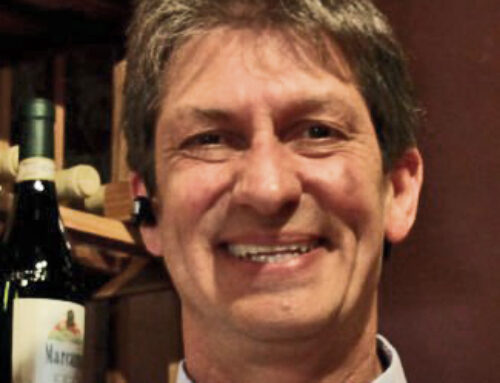Owner Karen Topping forges ahead despite property woes that could leave program without a home
Published in the September 17-30, 2014 issue of Morgan Hill Life
By Robert Airoldi

Karen Topping’s daughter Megan, 4, visits with a horse at Sonrisa Stables in San Martin. Photo by Robert Airoldi
Over the years, Karen Topping has built up her Sonrisa Stables youth program at the 20-acre Taylor Made Farms in San Martin. But that business is in peril, as the property is now in foreclosure.
“We have wonderful owners who fully support our flourishing youth program,” Topping said. “We’ve built the program up and now it’s in danger of closing.”
Despite the uncertainty, Topping forges ahead, teaching — mostly girls from 6 to 17 — how to ride, train horses, tend to the animals’ needs, and even take on small chores around property.
“This facility is the only one of its kind from Saratoga to Hollister and includes a 300-foot arena, stables, a pasture and lots of room for riding,” Topping said.
Topping, who lives in San Martin with her 4-year-old daughter Megan, understands the natural curiosity of children and their ability to learn. Under her supervision, the children in the program take on various projects, including adopting out 27 wild mustangs since 2010 after getting them from the Bureau of Land Management and spending about three months training them so they can be adopted by families looking for a horse.
But that isn’t all. In the past, the children have participated in barrel racing, English and Western shows, horse camping, puppy fostering and caring for a petting zoo on the property.
She teaches horse care, stable management, remedial training and mentoring skills, in addition to the lessons. The stables also have a mom’s group program for those mothers who want to be more involved, and Topping encourages that.
“It’s really family oriented,” Topping said. “Kind of old school.” Families are included in horse camping, trail rides, barbecues and other events.
The property is permitted for 80 horses – there are currently 25. Horses include every type from mares to foals and even geriatric horses.
Topping has been in the equine business for nearly two decades, and has learned and taught every form of riding there is. She was born in Long Island, New York and traveled across the county, where she learned from many different trainers before settling in California in 1999. That extensive background has given her the knowledge needed to offer such as variety of skills. She pulled those experiences together and started Sonrisa Stables 12 years ago, moving to Taylor Made Farms in 2008.
“It’s a fantastic community,” Topping said. “It’s all inclusive. It’s more than just lessons, it’s a way of life.”
But perhaps one of her favorite — and the girls’ too — is when they adopt the wild mustangs.
Recently, wild mustangs and one burro found new forever homes through the BLM’s National Wild Horse and Burro Adoption program.
To maintain a thriving ecological balance, the BLM’s National Wild Horse and Burro Program protects, manages and controls wild horse and burro herds. According to the BLM’s website, “wild horses and burros have virtually no natural predators and their herd sizes can double about every four years. As a result, the agency must remove thousands of animals from the range each year to control herd sizes.”
When overpopulation or resource damage occurs, horses and burros are rounded up and made available for adoption at events such as the one that took place at Taylor Made Farms.
Four wild horses, trained by four five-person teams led by Topping in just three months, were up for adoption.
The young riders from Sonrisa showcased their hard work in a performance with the now halter-gentled mustangs.
“It gives the girls so much confidence,” Topping said. “And the horses go to loving families.”
Topping insists the girls give back to the community. Last year for Christmas, the group invited kids from Rebekah’s Children Center in Gilroy to the property. Each child received a gift from their Christmas gift, rode horses, visited the bunny pen and had their faces painted. “The kids got up close and personal with the animals,” Topping said. “It was amazing to see children who have never seen an animal like that up close. It was phenomenal. It brought all the families together to give back.”






